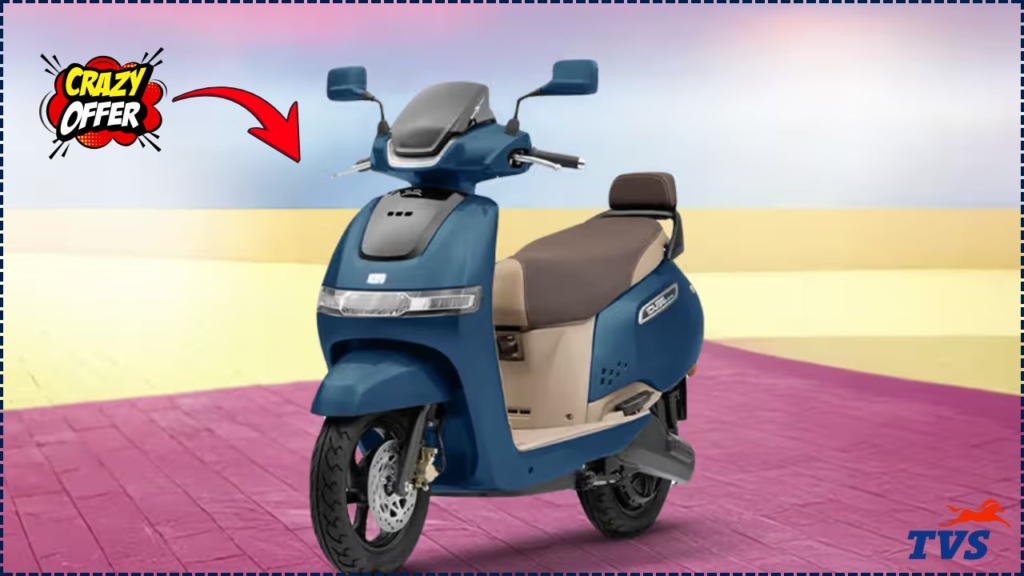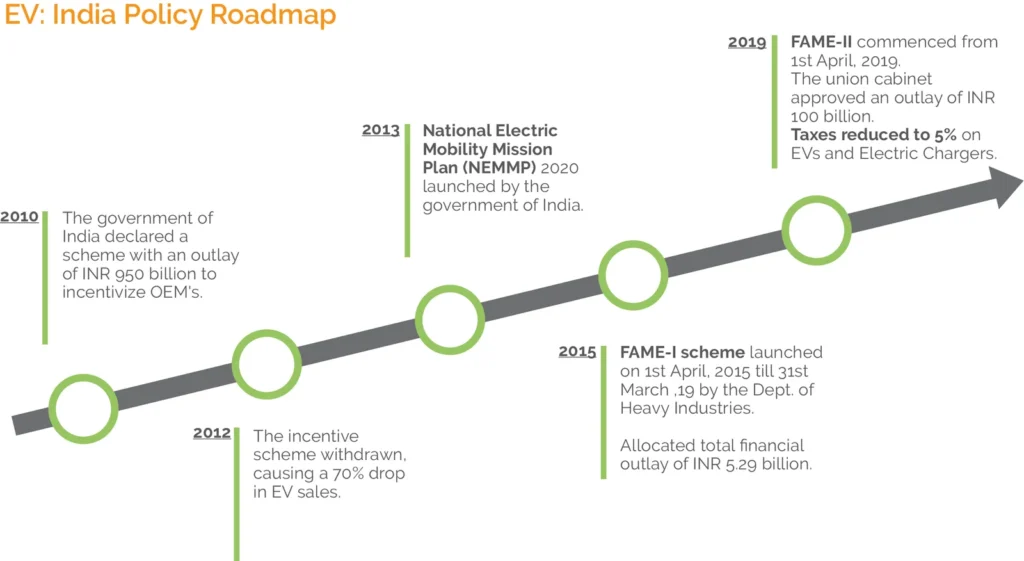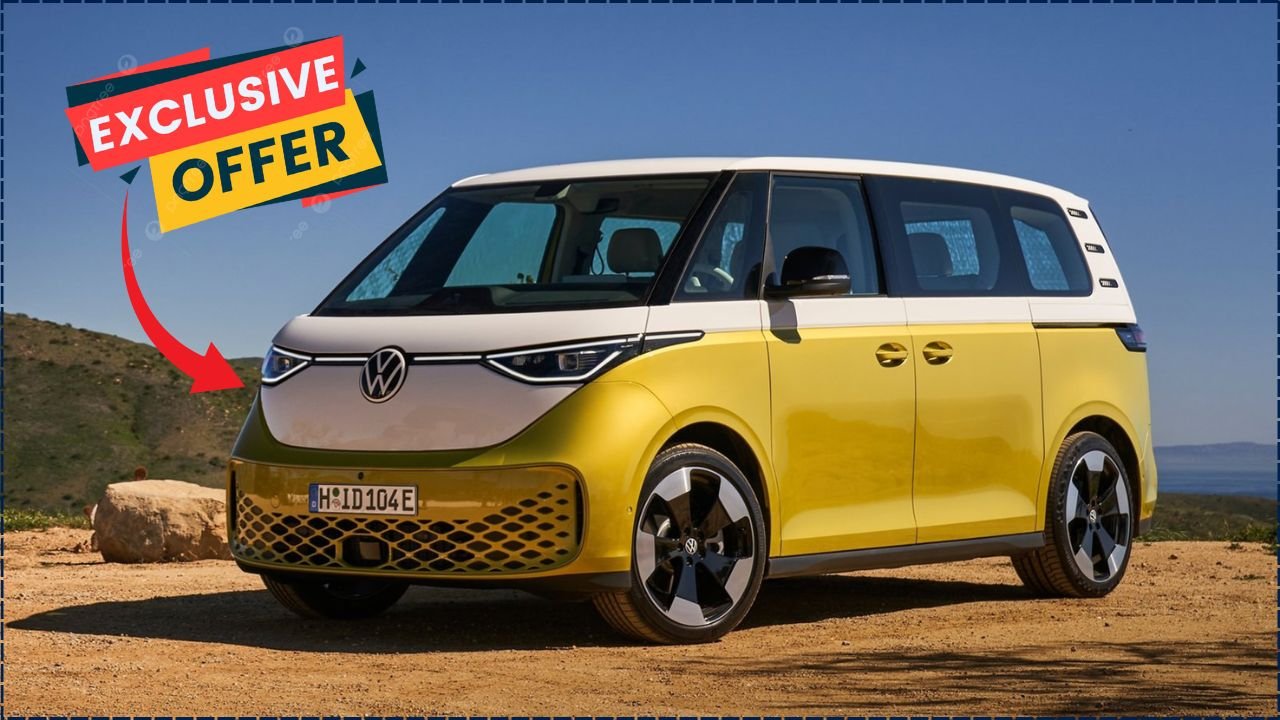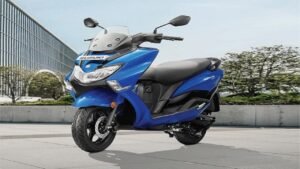
TVS Motor Company has announced an upgraded lineup of its TVS iQube Electric Scooter, with claims of a potential 410-kilometre range on a single charge under ideal testing conditions. The update, paired with significant price reductions, aims to cement the manufacturer’s role in India’s rapidly evolving electric vehicle (EV) market.
Table of Contents
Expanding India’s Electric Two-Wheeler Market
The TVS iQube Electric Scooter first entered the Indian market in early 2020, marking the company’s foray into electric mobility. Five years later, TVS has emerged as one of India’s most trusted EV brands, offering a combination of performance, smart technology, and wide service coverage.
The 2025 refresh introduces four new variants, featuring upgraded battery packs, advanced connectivity, and better riding ergonomics. According to TVS, the top-tier iQube ST 5.3 kWh delivers a claimed Indian Driving Cycle (IDC) range of 212 km, while a new experimental variant showcased internally during testing has achieved up to 410 km in ideal lab conditions.
Industry experts caution that the extended figure reflects prototype performance. “The 410 km claim is based on controlled conditions,” said Ramesh Krishnan, automotive researcher at the Indian Institute of Technology Madras. “In practical riding scenarios, users can expect between 180 km and 220 km, which remains competitive in its class.”
Pricing Strategy and “Bumper Sale” Incentives
To accelerate adoption, TVS has introduced a limited-period bumper sale, reducing prices by up to ₹28,000 across select models. According to Navbharat Times, this initiative is part of a nationwide festive campaign designed to boost year-end sales and strengthen TVS’s foothold in the electric two-wheeler market.
The base variant now starts at roughly ₹1.10 lakh ex-showroom, while the ST model ranges between ₹1.45 lakh and ₹1.55 lakh, depending on location and state EV subsidies. In states such as Maharashtra and Gujarat, additional incentives reduce the effective price further.
TVS has also partnered with leading financial institutions to offer zero-down-payment schemes and low-interest EMIs. “These measures position the iQube as an accessible EV option for both urban and semi-urban commuters,” noted Anjali Sharma, analyst at Motilal Oswal Financial Services.
TVS iQube Electric Scooter Technical Overview: Range, Battery, and Performance
The TVS iQube ST 5.3 kWh variant features a 7-inch TFT display, Bluetooth and Alexa integration, and geo-fencing for anti-theft protection. The electric motor delivers 4.4 kW peak power, enabling acceleration from 0–40 km/h in just 4.2 seconds.
Charging options include a 650 W portable charger, which can replenish the battery from 0–80% in approximately 4.5 hours. TVS is also offering a fast-charging station network, enabling 0–80% charging in under 2 hours at designated points.
According to TVS’s official documentation, the scooter’s regenerative braking recovers up to 10% of lost energy during deceleration, while the redesigned battery casing enhances heat dissipation and safety.

Smart Mobility and Connectivity
The TVS SmartXonnect platform powers all new iQube models, offering real-time diagnostics, remote battery health tracking, navigation, and ride analytics through the companion mobile app. Riders can locate nearby charging stations or receive over-the-air (OTA) software updates.
“The new system makes the scooter feel like a connected mobility device rather than a traditional vehicle,” said Priya Menon, editor of Auto Pulse India. “It’s this digital integration that will attract younger, tech-savvy buyers.”
Smart mobility remains a critical differentiator in the electric vehicle market in India, where consumer expectations increasingly mirror those for smartphones—instant updates, cloud syncing, and integrated support.
Environmental and Policy Impact
The expansion of India’s EV ecosystem aligns with government initiatives under the Faster Adoption and Manufacturing of Electric Vehicles (FAME-II) scheme. The central government provides subsidies up to ₹15,000 per kWh of battery capacity, while many states supplement this with tax exemptions and registration fee waivers.
Experts say broader adoption of scooters like the iQube could significantly reduce India’s urban carbon footprint. According to The Energy and Resources Institute (TERI), every 1,000 electric two-wheelers replacing petrol equivalents can cut nearly 36 tonnes of CO₂ emissions annually.
TVS has also announced a battery recycling programme, partnering with third-party recyclers to recover lithium, cobalt, and nickel for reuse in future battery production.

Infrastructure Challenges and Expansion
While long-range scooters offer promise, India’s charging infrastructure remains uneven. Metro cities such as Delhi, Bengaluru, and Pune have seen rapid charger installations, but Tier-2 and Tier-3 regions lag behind.
“Battery capacity alone won’t drive adoption,” said Dr. Meera Patel of the Energy and Resources Institute (TERI). “Accessibility and reliability of public charging points will determine whether these scooters fulfil their potential.”
TVS plans to install over 2,000 public chargers across India by late 2026, in collaboration with energy partners such as Tata Power and Zeon Charging.
Global Context and Competitive Landscape
Globally, the electric scooter segment is witnessing intense competition. China’s NIU and Europe’s Silence S01 models already claim ranges above 200 km. India’s market, however, prioritises cost efficiency and battery safety over raw power.
Domestically, Ola Electric, Ather Energy, and Hero MotoCorp remain key competitors. Each is developing high-capacity battery platforms and proprietary fast-charging solutions. According to a NITI Aayog–Rocky Mountain Institute report, India’s electric two-wheeler sales are projected to exceed five million units annually by 2030.
Maruti Wagon R 2025 Offer Blast! 32KM/L Mileage Hatchback with Big Discounts!
Consumer and Dealer Perspectives
Dealers report increasing interest in EVs despite concerns about charging infrastructure. Rohit Verma, a dealership manager in Bengaluru, said, “Customers are more confident now. They’ve seen neighbours using EVs daily, and maintenance costs are proving significantly lower.”
Early owners also cite smooth acceleration, quiet operation, and low running costs as major advantages. Independent testers have recorded running costs as low as ₹0.25 per kilometre—less than one-fifth of a comparable petrol scooter.
However, some riders remain cautious about range and resale value. “Battery replacement costs are still a question for many,” said Anirudh Basu, a Delhi-based EV owner. “If TVS offers extended warranties, that could reassure long-term buyers.”
Outlook and Conclusion
The TVS iQube Electric Scooter represents both a technological and strategic leap for the Chennai-based automaker. With its combination of longer range, competitive pricing, and connectivity features, it is well-positioned to capitalise on India’s accelerating shift toward smart mobility.
Yet, success will depend on infrastructure readiness, transparent range claims, and sustained after-sales support. As India races toward its 2030 electrification goals, products like the iQube could play a pivotal role in reducing emissions, cutting fuel imports, and transforming daily commutes across the country.

















